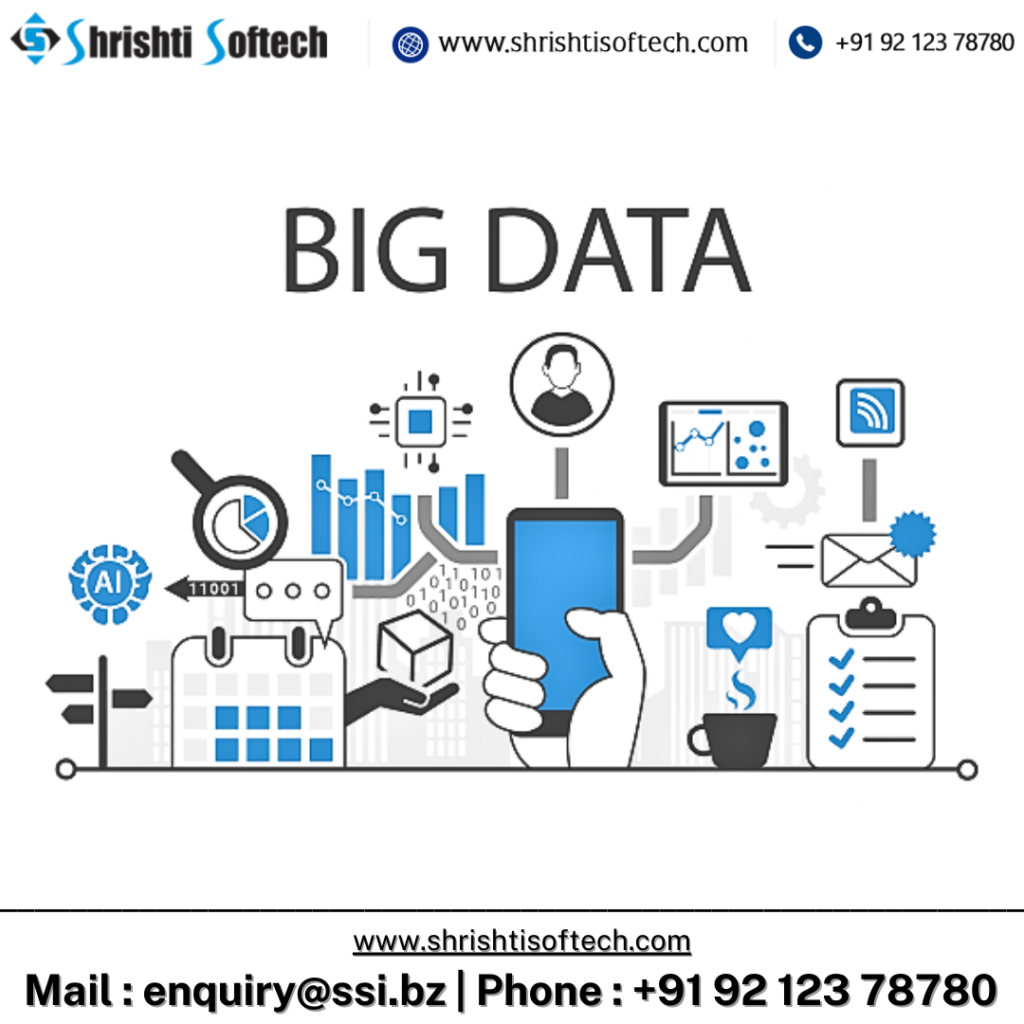
In today’s digital era, data has become the new currency. The enormous volume of information generated every second has given rise to a revolutionary concept known as Big Data Analytics. This technological marvel is reshaping the way businesses operate, make decisions, and gain a competitive edge in their respective industries. In this blog, we will delve into the world of Big Data Analytics and explore its profound impact on businesses.
The Dawn of Big Data Analytics :
Big Data Analytics is the process of collecting, processing, and analyzing vast amounts of data to extract valuable insights and patterns. The advent of the internet, social media, IoT devices, and other digital technologies has led to an explosion in data creation. This data encompasses customer behavior, market trends, operational metrics, and more. However, the real magic lies in harnessing this data to gain actionable insights, and that’s where Big Data Analytics comes into play.
Transforming Decision-Making :
In the traditional business landscape, decisions were often made based on intuition and limited information. Big Data Analytics has revolutionized decision-making by providing businesses with a data-driven approach. By analyzing historical and real-time data, organizations can identify trends, predict future outcomes, and make informed choices. This proactive decision-making helps businesses stay ahead of the curve and adapt to changing market dynamics.
Enhancing Customer Understanding :
Customers are the lifeblood of any business, and understanding their preferences and needs is crucial for success. Big Data Analytics allows businesses to gain deeper insights into customer behavior, preferences, and sentiments. By analyzing customer interactions, purchase history, and feedback, companies can tailor their products, services, and marketing strategies to meet customer demands more effectively.
Personalized Marketing and Customer Experience :
Gone are the days of one-size-fits-all marketing strategies. Big Data Analytics enables businesses to create highly personalized marketing campaigns. By analyzing customer data, businesses can segment their audience and deliver targeted messages that resonate with individual preferences. This level of personalization enhances the customer experience, builds brand loyalty, and drives higher conversion rates.
Operational Efficiency and Cost Reduction :
Big Data Analytics also holds the key to optimizing operational processes. By analyzing operational data, businesses can identify bottlenecks, inefficiencies, and areas for improvement. This data-driven approach streamlines workflows, reduces operational costs, and enhances overall efficiency.
Predictive Analytics and Forecasting :
Predictive analytics is a powerful aspect of Big Data Analytics that helps businesses anticipate future trends and outcomes. By analyzing historical data and patterns, organizations can make accurate forecasts regarding market demand, inventory levels, and resource allocation. This capability enables businesses to make well-informed decisions to avoid stock outs, reduce excess inventory, and optimize resource utilization.
Risk Management and Fraud Detection :
In the age of digital transactions, cybersecurity and fraud prevention have become paramount. Big Data Analytics plays a pivotal role in identifying and mitigating risks by analyzing transactional data for unusual patterns and anomalies. This proactive approach helps businesses prevent fraud, safeguard sensitive information, and maintain the trust of their customers.
The Road Ahead :
As technology continues to evolve, so does the potential of Big Data Analytics. With advancements in machine learning and artificial intelligence, businesses can delve even deeper into data analysis, uncovering insights that were once unimaginable. The integration of Big Data Analytics with emerging technologies will undoubtedly reshape business strategies, customer interactions, and industry landscapes.
In conclusion, Big Data Analytics has become an indispensable tool for businesses seeking to thrive in the digital age. From refining decision-making to enhancing customer experiences and optimizing operations, the impact of Big Data Analytics is far-reaching and transformative. As businesses continue to harness the power of data, they are not only gaining a competitive advantage but also shaping the future of their industries.


